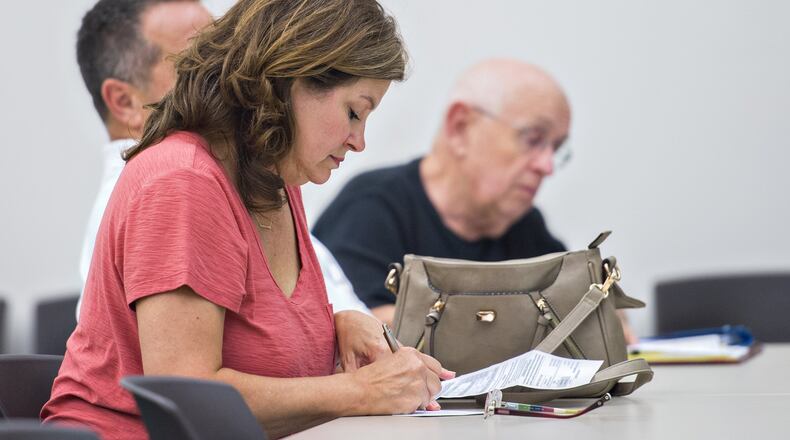How to appeal your property assessment
Want to appeal your property assessment? At the AJC Answers center, you can find answers to common questions about assessment and get tips for winning your appeal. Go to www.myajc.com/s/public-affairs/ajc-answers-tax-assessments/
Rising assessments
Residential real estate assessments rose substantially in Metro Atlanta’s five largest counties this year:
County %Increase
Clayton 10.6%
Cobb 7.5%
DeKalb 17.1%
Fulton 9.6%
Gwinnett 6.1%
For a city-by-city look at this year's property assessments, visit www.myajc.com.
Thousands of Metro Atlanta homeowners got a nasty shock recently when property tax appraisals arrived in the mail.
Residential property assessments are up sharply this year. But values rose much faster in some communities than others, a city-by-city analysis by The Atlanta Journal-Constitution found. That could mean big property tax increases for tens of thousands of homeowners.
Values rose 20 percent or more in Decatur, Stone Mountain, Palmetto and other communities, the newspaper found. Cities from Dacula to Alpharetta to Jonesboro also saw double-digit increases.
Some can’t believe their homes are worth what assessors say.
“I don’t think my house has gone up 58 percent in one year,” said Kathy Kirk of Brookhaven. Her assessment rose from $590,400 to $933,500, and her tax bill is projected to rise from $7,879 to $11,184.
Meanwhile, residential values actually fell in a handful of communities.
County appraisers say their assessments are based on market realities. They say some communities devastated by foreclosures during the Great Recession are rebounding, while new construction also is adding to the tax rolls. Hot local real estate markets also are a factor, they say.
“What are the three most important factors in real estate values?” Fulton Chief Appraiser David Fitzgibbon asked nearly 100 people who attended a town hall meeting on property taxes last week in Alpharetta. “Location, location, location.”
Each year, county assessors determine the value of property for tax purposes. They don’t have the staff or resources to visit every property. So they use statistical methods to revalue entire neighborhoods, relying on real estate sales data and other information. The end result is supposed to reflect what each property would fetch on the open market.
Critics have said tax assessors were too reluctant to cut prices when the real estate market collapsed in the wake of the Great Recession. A series of AJC investigations found assessments in 11 metro counties were too high compared to sales prices for several years after the recession, though the most recent investigation in 2013 found typical assessments in many counties were too low as the real estate market began to recover.
“Generally, they get it right more often than they get it wrong,” said private appraiser Stan Anderson. “But some people get hit harder than others. It’s just the nature of the system. They don’t individually appraise each house.”
Flawed or not, the latest assessments will be used to determine this year’s property tax bills. Generally, the more a property is worth, the bigger the tax bill. The other major factor: tax rates set by school boards, county commissions, city councils and other government agencies.
In this spring’s assessments, total residential values rose 17 percent in DeKalb County and 11 percent in Clayton County, according to preliminary data examined by the newspaper. Residential values also rose in Fulton (10 percent), Cobb (7.5 percent) and Gwinnett (6 percent) counties.
In some cases, there are dramatic assessment differences among communities within the same county.
In Fulton, for example, the total value of residential property rose just 3.9 percent in Mountain Park but jumped nearly 10 percent in nearby Roswell and nearly 13 percent in Alpharetta. They fell nearly 1 percent in Hapeville, but rose more than 11 percent in unincorporated south Fulton.
Homeowners who disagree with their values have 45 days from the date on their assessment notice to appeal. In some counties, like Gwinnett, that deadline has already passed.
The deadline for Fulton appeals is July 20. At last week’s town hall meeting, homeowners quizzed Fitzgibbon about the assessment process and appeals.
“Everybody’s in here for one reason,” one Johns Creek resident told the assessor. “We feel you’ve unfairly raised the property value of our homes.”
Fitzgibbon urged the owners to appeal if they believe their values are incorrect.
“We’re usually right,” he said. “It doesn’t mean that, individually, you don’t have a problem.”
About the Author
The Latest
Featured



